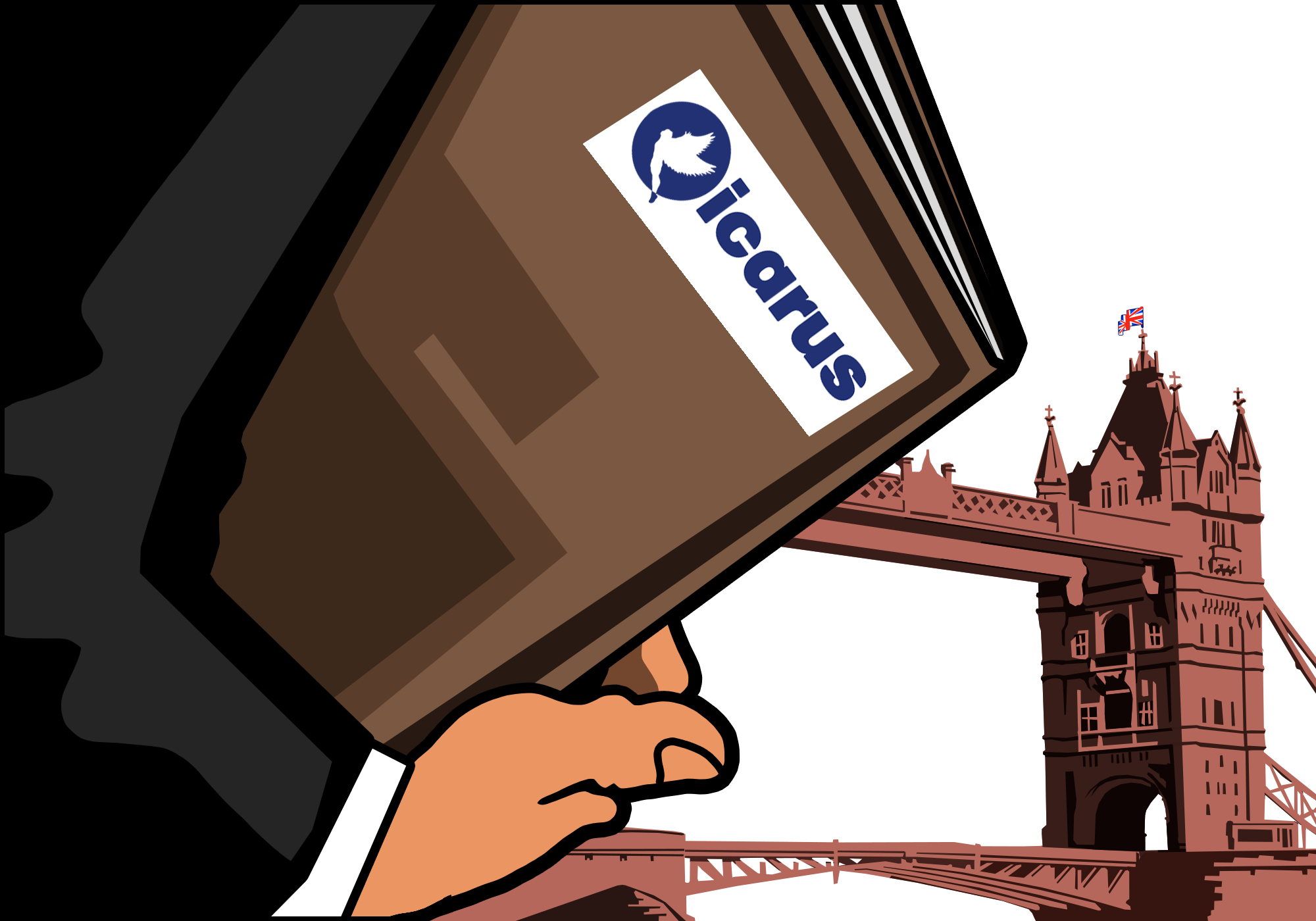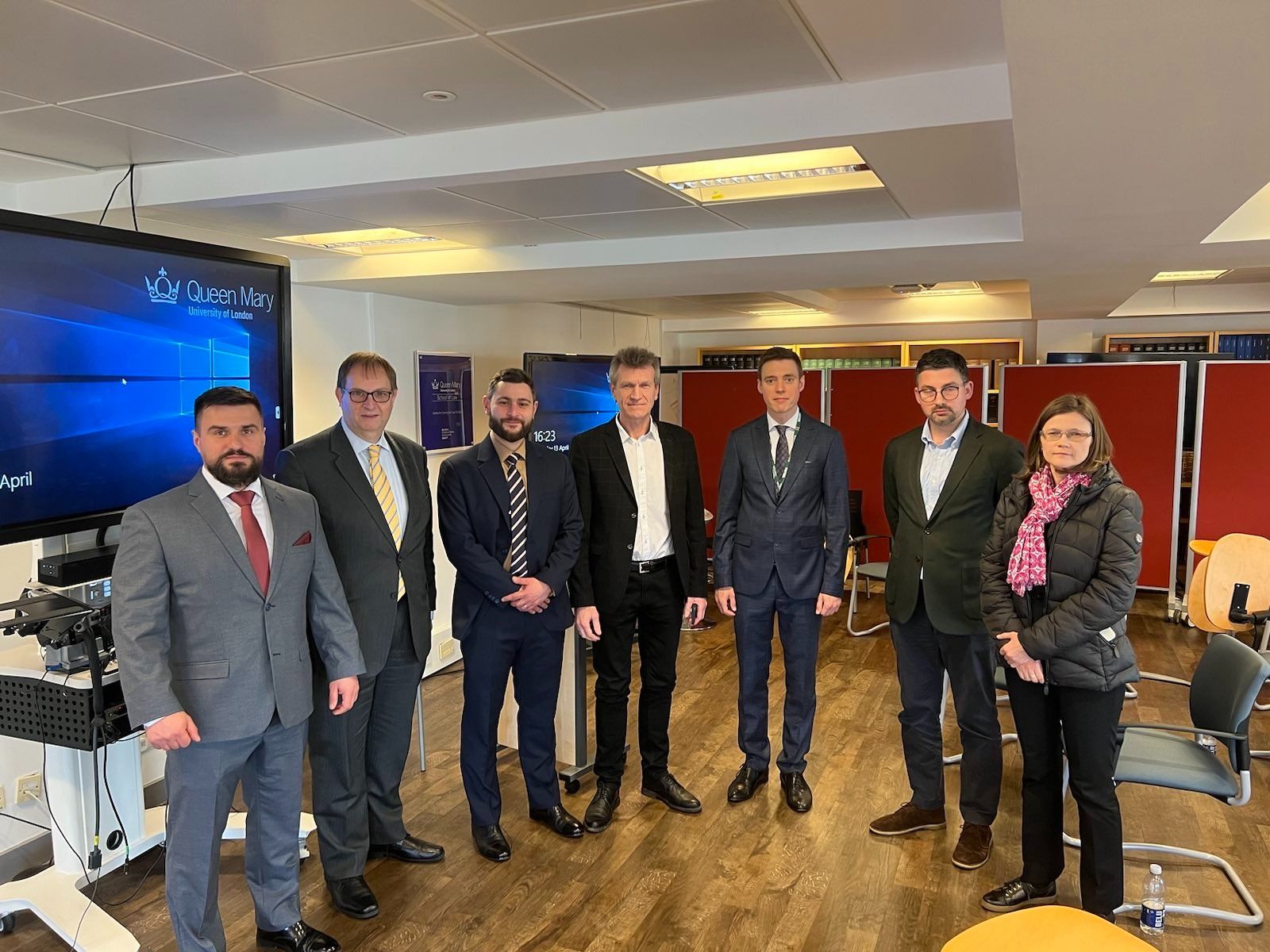
ICARUS in London: How to bring the top leaders of Russia to justice and to recover reparations?
13/04/2023, 10:00
On April 12-13, 2023, a round table “A TRIBUNAL FOR RUSSIA’S CRIME OF AGGRESSION” was held at Queen Mary University of London, bringing together ICAR experts, leading scholars, and practitioners in the field of international law.
Among the participants of the round table were: • Prof. Loukas Mistelis, LLB, MLE, FCIArb, Advocate (AthensBar), Clive M Schmitthoff Professor of Transnational Commercial Law and Arbitration; • Arthur Traldi, International Investigation and Dispute Resolution Attorney, Senior Fellow Washington College of Law, Washington DC, the United States; • Eric Z. Chang, International Attorney, U.S. JAG Corps Officer, Promoting DEI and Mentorship, Los Angeles, the United States; • Dr. Thomas MacManus, Senior Lecturer in State Crime and Acting Director of the International State Crime Initiative (ISCI) at the School of Law, Editor-in-Chief of State Crime journal and Associate Editor of the International Journal of Human Rights, Queen Mary University of London, London, United Kingdom; • Prof. Slava Opeida, Visiting Scholar at Lauterpacht Centre for International Law, University of Cambridge, Associate Professor in International Trade Law at National University of Kyiv-Mohyla Academy, Kyiv, Ukraine. • Maria Kostytska, Partner at Winston & Strawn, Paris, France.

ICARUS was represented by: • Dr. Oleksandr Shulha, Doctor of Sociology, National Academy of Sciences of Ukraine Institute of Sociology, CEO and Head of Social Studies at the Institute for Conflict Studies and Analysis of Russia (ICARUS), Kyiv, Ukraine. • Armenak Ohanesian, Head of Legal Studies at the Institute for Conflict Studies and Analysis of Russia (ICARUS), Partner at Ohanesian’s Law Office, Kyiv, Ukraine. • Oleksandr Boyaryntsev, Associate of Legal Studies at the Institute for Conflict Studies and Analysis of Russia (ICARUS), Associate Partner at MK Legal Service, Kyiv, Ukraine.
The round table was held over two days and included informal meetings.
During the round table, the main topics for discussion included the gathering of evidence related to Russia's war crimes, determining the form of the future tribunal (such as a "hybrid model" or a international claim commission established on the basis of an international treaty), and mechanisms for the recovery of reparations.
In his report, Armenak Ohanesian highlighted problematic issues related to evidence collection, including the effective collection and storage of evidence for environmental damage. He also noted a lack of cooperation between state bodies in this process.
Arthur Traldi emphasized that a completely new tribunal is close to being established, with its own unique set of procedures and rules regarding admissible evidence. Various forms of evidence may be deemed appropriate, including exhibits, testimonies and documentaries - much like the approach taken by the Nuremberg Tribunal.
Some interesting discussions took place regarding the future tribunal model. Thus, some participants supported the option of creating a «hybrid tribunal». That would be an internationalized court, but created on the basis of Ukrainian legal system.
However, ICARUS experts did not share this view, citing several disadvantages to this option:
• it would be contrary to Article 125 of the Ukrainian Constitution, which prohibits the establishment of extraordinary and special courts in Ukraine. Additionally, amending the Constitution is only possible if martial law is terminated • Doubts are emerging regarding the possibility of a "hybrid tribunal" to lift the immunity of senior officials of the Russian Federation.
This means that the establishment of such a tribunal is possible only after the end of the war. Moreover, there are existing doubts about its international legitimacy.
ICARUS experts pointed out that an ad hoc international claim commission, established by a resolution of the UN General Assembly followed by the conclusion of multilateral international treaties, would not have the same shortcomings.
Apart from purely legal questions, the roundtable presented the results of the ICARUS social research area.
Foreign experts demonstrated a keen interest and strong understanding of ICARUS research focus, particularly regarding the attitude of Russian society towards their State's commission of aggression.
The research and methodology were introduced by Dr. Oleksandr Shulha, CEO and Head of Social Studies at ICARUS.
Following the round table, ICARUS formed new scientific connections and reached an agreement on collaborative research.
The objective of these studies should be to address the centralized system of evidence collection and develop mechanisms for recovering reparations from the Russian Federation
Furthermore, participants of the London’s round table have been invited to a forum in Kyiv, organized and supported by ICARUS, scheduled for early summer. It’s main goal is to continue the discussion.
Stay updated on upcoming ICARUS events by following our website.




